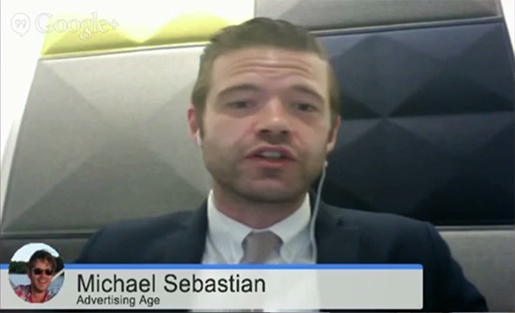After it was revealed Buzzfeed had deleted a post criticizing one of Dove’s ad campaigns there was speculation they had bowed to pressure from Unilever. All publications that make money from ad revenue have to face this question. What makes BuzzFeed different is how closely their own editorial resembles sponsored content. Take for instance, this video where two BuzzFeed Motion Pictures staff give glowing reviews of the Apple Watch. In a tweet, BuzzFeed editor-in-chief Ben Smith explained the post was taken down because it was a “hot take” and not because he was trying to appease an advertiser. But not everyone is buying Smith’s reasoning. Jeremy Stahl, Slate’s senior editor, wrote, “BuzzFeed runs a ton of takes that by the site’s own definition might be considered hot” and then proceeds to list 14 examples. The Atlantic’s Adrienne LaFrance pointed out deleting the post ran counter to BuzzFeed’s own editorial guidelines. While we don’t know to what extent BuzzFeed credibility has been damaged, the resignation of Arabelle Sicaradi, the author of the deleted post, looks bad. Given the aforementioned inconsistencies, the question still remains: How much influence do advertisers hold over editorial decisions? We’ll be joined this week by Benjamin Mullin, staff writer at Poynter; Michael Sebastian, media reporter for Ad Age; and Alex Leo, head of audience development at Yahoo. Mediatwits regular Andrew Lih of American University will guest host and Jefferson Yen will be producing.
Don’t have a lot of time to spare but still want to listen to the Mediatwits? Then check out our Digital Media Brief below!
Mediatwits: Full Episode
Digital Media Brief
Listen to the Mediatwits and follow us on SoundCloud! Thanks to SoundCloud for providing audio support. Subscribe to the Mediatwits audio version via iTunes. Follow @TheMediatwits on Twitter. Subscribe to our YouTube Channel.
MEDIATWITS BIOS
Andrew Lih is a new media journalist and associate professor of journalism at the American University School of Communication. He is the author of “The Wikipedia Revolution” (Hyperion 2009, Aurum UK 2009) and is a noted expert on online collaboration and journalism. He is a veteran of AT&T Bell Laboratories and in 1994 created the first online city guide for New York City (www.ny.com). Follow him on Twitter @fuzheado.
Alex Leo is the head of audience development for Yahoo! Before that she was the head of product for Newsweek and Reuters.com, a senior editor at The Huffington Post and an associate producer at ABC News. She was named one of Forbes 30 Under 30 in 2012 and chosen by NBC New York as one of the top twenty people to follow on Twitter (@alexmleo). She has written for The Guardian, The Atlantic, Elle, Jezebel, Reuters, and more, as well as the play “Love, Loss and What I Wore.” She is on the advisory board of Internet Week New York and a mentor at Columbia’s Publishing Course.
SPECIAL GUESTS
 Benjamin Mullin is a staff writer at The Poynter Institute, where he covers the media. Before that, he was a Google Journalism Fellow and Naughton Fellow there. If you like what he has to say (or even if you don’t) he can be reached at [email protected] or @benmullin on Twitter.
Benjamin Mullin is a staff writer at The Poynter Institute, where he covers the media. Before that, he was a Google Journalism Fellow and Naughton Fellow there. If you like what he has to say (or even if you don’t) he can be reached at [email protected] or @benmullin on Twitter.
 Michael Sebastian covers the media business for Advertising Age, including the often confusing world of content marketing and native advertising. He joined Ad Age in 2013 after founding PR Daily, a daily news site covering digital marketing and public relations. He started his career as a newspaper reporter in Chicago. He’s @msebastian
Michael Sebastian covers the media business for Advertising Age, including the often confusing world of content marketing and native advertising. He joined Ad Age in 2013 after founding PR Daily, a daily news site covering digital marketing and public relations. He started his career as a newspaper reporter in Chicago. He’s @msebastian
BACKGROUND
The last time native advertising became a major problem for a publisher was back in 2013 when the Atlantic published a sponsored post for Scientology. The ad looked just like a regular article except for a small yellow “sponsored content” banner at the top of the page. Earlier this week, the American Society of Magazine Editors revealed new guidelines on native advertising. The guidelines advise against advertisements that mimic the “look and feel” of the digital publication that they appear in. The guidelines also address conflicts of interest: “Editors should avoid working with and reporting on the same marketers.”
To understand why native ads are so important you first have to understand why banner ads are declining. According to a study by Nielsen, the audience measurement company, when reading on the web most people don’t even look at banner ads. A report by Adform reveals that less than a fraction of one percent of viewers clicked on banner ads. Native ads have a one percent audience engagement rate.
How could Buzzfeed have better handled this situation? How can marketers and publishers approach native ads that both distinguishes it from editorial content while keeping the audience engaged?
Jefferson Yen is the producer for the Mediatwits Podcast. His work has been on KPCC Southern California Public Radio and KRTS Marfa Public Radio. You can follow him @jeffersontyen.


